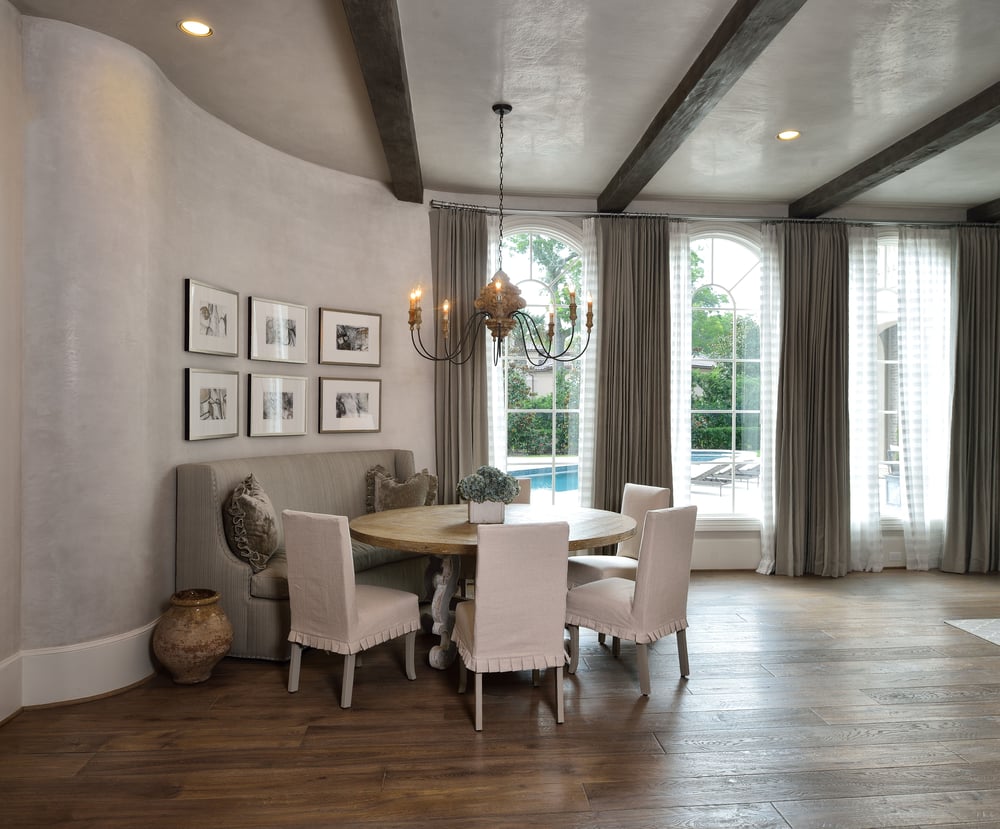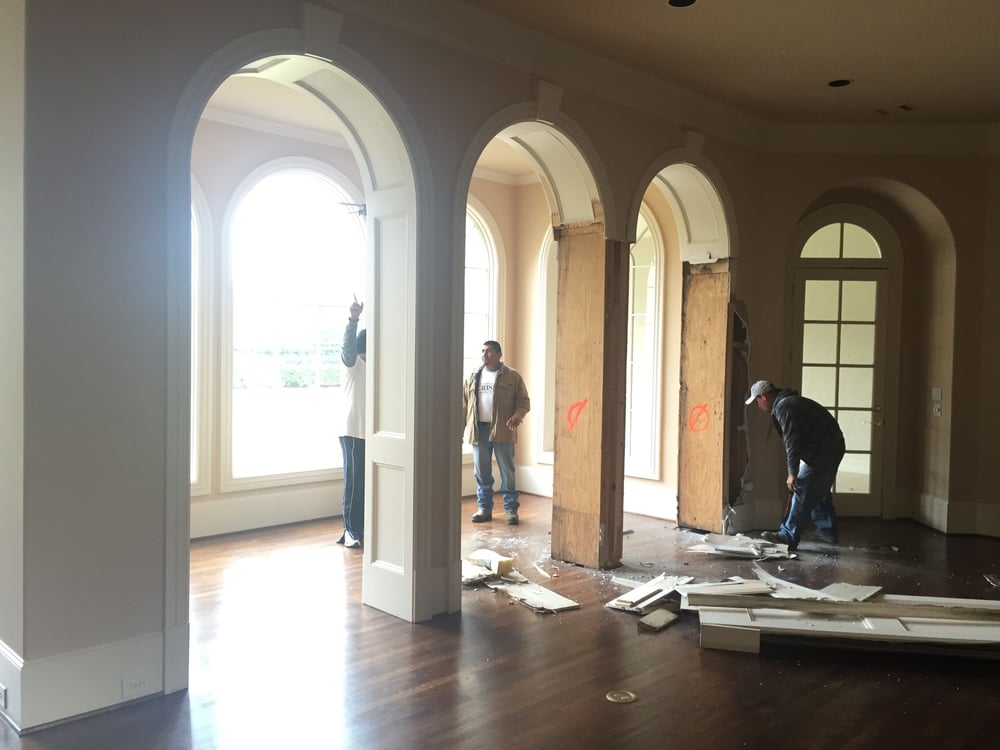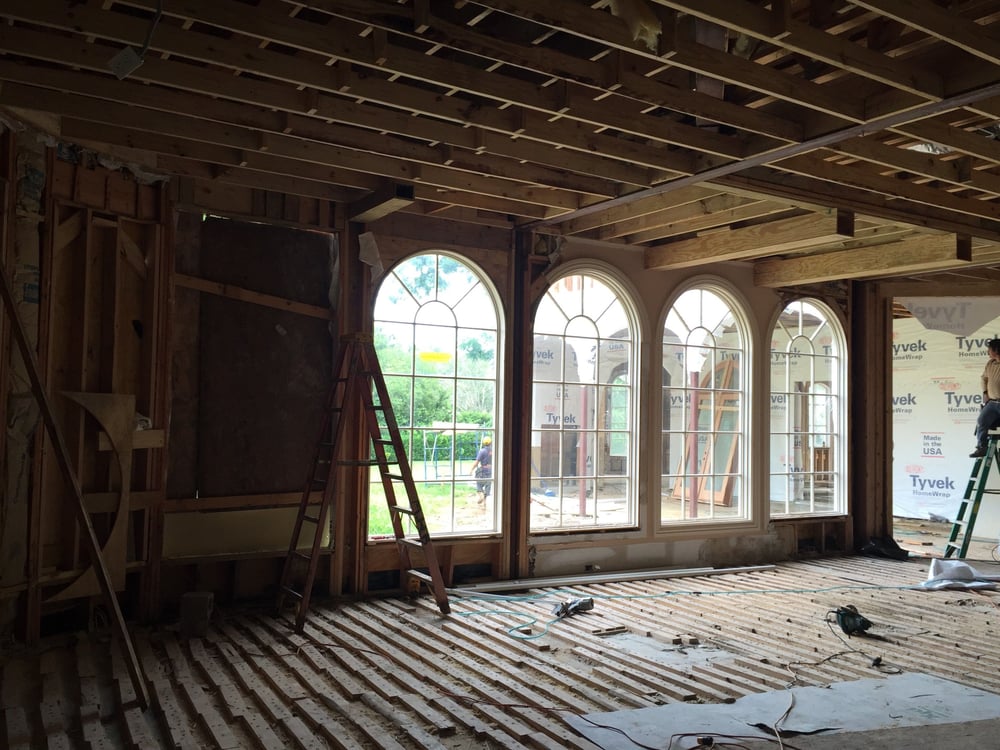 There’s a mythology out there that renovating a house is usually a nightmare project, with budgets and deadlines that inevitably spiral out of control. It’s unfortunate, but understandable. It’s the horror stories that stick in people’s minds and get retold time and time again, and like all tall tales, there’s more than a grain of truth to some of these stories. There are so many factors that go into creating a timeline for a home renovation project, and unexpected issues often crop up along the way, with consequences for the final move-in date. Whether a project stays on schedule depends on a lot of things. That’s what I want to talk about in today’s post.
There’s a mythology out there that renovating a house is usually a nightmare project, with budgets and deadlines that inevitably spiral out of control. It’s unfortunate, but understandable. It’s the horror stories that stick in people’s minds and get retold time and time again, and like all tall tales, there’s more than a grain of truth to some of these stories. There are so many factors that go into creating a timeline for a home renovation project, and unexpected issues often crop up along the way, with consequences for the final move-in date. Whether a project stays on schedule depends on a lot of things. That’s what I want to talk about in today’s post.
Given the prevailing ideas about renovation timelines, when homeowners come to us for advice about renovating their home, especially a large-scale renovation, they are often cautious. One of the first things they want to know is exactly how long this whole thing is going to take. It’s an important question! A whole home renovation usually means uprooting your lives for a time. Most families move out of the house temporarily (it’s more comfortable and convenient than living in the middle of a building site) and arrangements need to be made to store furniture and belongings somewhere safe and out of the way. You need an accurate prediction of how long it will be before you, your family and your stuff can move back home so that you can make your plans.
How Long Does a Whole Home Renovation Take to Complete?
As with a new custom home build, there is no quick, easy, and one-size fits-all answer to this question. But that’s okay. Every custom home renovation is a one-of-a-kind project with its own challenges and variables. That means it will have its own schedule. An experienced builder will be able to look at your home and your desired project scope, then give you a reliable idea of how long your planned renovation should take. They will know which factors to consider, and where to build in some margin to allow time to cope with the inevitable surprises that come with any large-scale project. To start, let’s look at a sample timeline for a whole home renovation.
Architectural Design Phase - 1 to 3 Months
Home additions and any structural changes require the input of an architect to make sure they are structurally sound, safe, and beautiful. The amount of time between giving your initial design meeting and receiving final plans will depend on the project scope as well as the experience and current workload of your architect.
Bidding Phase - 2-3 Weeks
Large scale renovations require a complex bidding process to ensure that you are getting the best possible value from all the subcontractors who will work on your home renovation. Multiple hard bids must be solicited and thoroughly vetted for all major items, so that a comprehensive and accurate budget can be created. If you bring a builder on board from the beginning of the architectural design phase, you can save some time here: the builder can begin working through the vetting process while plans are being finalized.
HOA Approvals and City Permitting - 1 Month
After your plans are complete and signed off, they need to be submitted to the relevant authorities so that all of the correct permits, approvals, and inspections are in order before work begins.
Construction Phase - 3 to 9 Months
This phase is where you will see the most variation and progress! As a rough guideline, most renovation projects we work on can be completed in 3 to 9 months, depending on the size of the house, the scope and complexity of the project, and some other factors we will talk about next.
What Factors Can Affect the Schedule of My Renovation Project?
Let’s talk about some of the most common factors we need to consider when we create a projected timeline for a renovation. Some of these are things we can control, while others are out of our hands. A renovation project calls for a balance of careful planning and the flexibility to adapt when those plans need to change. If your team knows how to do both, they can make sure that delays are kept to an absolute minimum, no matter what happens along the way.
The Size of Your Home and the Scope of the Renovation
This one is obvious, but so important. Is this a single room renovation or are you reimagining the whole house? Are there structural changes involved? Are you planning to build a new addition to your existing home? Every planned change takes time to do right.
Weather
This is one of those act-of-God things that can throw a wrench into the best-laid plans. Experience has taught us to leave some extra room in the schedule for the vagaries of fate, like out-of-the-blue storms and cold snaps. Most builders and their teams are used to working through all kinds of weather. Sometimes, however, we are at the mercy of the elements, and need to make adjustments for variations such as:
-
Extreme Temperatures: Most of the time, here in Houston, we don’t need to worry about this one. But some cities and states need to cope with huge swings of the thermometer which can totally change the timeline. When the temperature drops below freezing, it can affect the way paint dries or concrete hardens. Temperatures that stay over 100 degrees for a long time can create their own problems. In both cases, the crews may need to take a break for safety’s (and quality's) sake.
-
Rain, Sleet, Snow and Hail: Precipitation is a big part of the weather for us here in Houston. It's possible to continue working in the rain, but too much precipitation continuously falling from the sky for too long can stall a project, especially in the early stages of building a new addition. If site work or landscaping is needed, extreme muddy conditions can slow down the bulldozers. Very wet conditions or flooding can compromise the pouring of the foundation or keep the framing from going up in time. However, after the foundation is dried in and most of the work has moved indoors, it can rain all day and all night without affecting our schedule.
Construction Permits and HOA Delays
When your builder has a super-organized and efficient office team handling the paperwork, you know that everything possible is being done to move the process along. However, sometimes there are hold-ups on the other end, whether that’s because the permitting office is dealing with a backlog, or because someone on the Homeowners Association board is out-of-pocket for a period of time.
Uncovering unforeseen issues with current structure
I know. This is the most stressful variable. As demolition begins, we sometimes find issues that cannot be ignored. Dealing with these problems can change the projected schedule. Some of the most common include:
-
Mold and water damage
-
Cracked foundation
-
Old, low quality, or dangerous construction materials and workmanship
While it’s never fun to encounter unexpected surprises during a renovation process, there is no reason to panic. A trustworthy building expert will have seen these kinds of issues before and will know how to handle them with minimal added time and expense. For more information on the most common renovation issues we’ve run into and how we deal with them, take a look at this comprehensive post.
Changes in design
Sometimes, you change your mind. A good builder should be flexible enough to roll with it. However, you should be aware that design changes can delay the completion of your renovation project and can also be a serious budget-buster.
What Can Homeowners Do to Make the Renovation Move Faster?
While there are many people on the home renovation team, including your architect, your builder, and the work crews, at the end of the day you are in charge. The right contractor is an expert and will give you all the benefit of their experience and advice, but they should also treat you as a full collaborator and a partner in the renovation. While there are some variables that are out of your control during a home renovation, you should never give up your power in the situation. There are some very important things you can do to help your project stay on track.
Choose the Right Renovation Contractor
We can’t say this enough. Your builder is at the forefront of every aspect of your home renovation. If they have the experience, expertise, and trusted network of reliable subcontractors to execute your plans, you are more than halfway to a project that will be completed on schedule. Choose a builder who is organized, with proven processes, and who holds themselves accountable for tracking project schedules and budgets. Transparency is key.
Hire an Interior Designer Early on in the Architectural Design Phase
It’s easy to think about interior design as a fluffy nice-to-have, or as something that only happens at the end of a renovation project. On the contrary, getting a great interior designer on board early will do SO much to streamline your schedule. Make as many selections with your designer as possible before starting construction. In fact, if you can make them before creating a final budget with your builder, even better: your budget will be based on actual material pricing instead of best estimates.
Understand the Lead Time for Certain Products and Materials
Many important materials such as flooring, doors, or specialty tiles have a longer lead time than you might think. Special orders need to be made early in the process so that you don’t end up in a situation where crews are waiting around for a missing delivery, throwing off the whole schedule. Again, making all of your selections early will pay off!
Have a Conservative Budget
Leaving wiggle room for unexpected hiccups is one of the smartest things you can do to keep your timelines intact. It means that your builders can adjust and cope with anything that goes wrong without needing to wait while you rebudget (a process which can snowball if you end up needing to change or cancel parts of your planned renovation to keep the budget intact.)
Make Sure Your Builder is Having Regular Project Meetings
And make sure you’re invited! Regular meetings are important to keep everything on track and to make sure that the site crews, the project manager, and everyone else is on the same page. Schedule regular site walks and visits with them so that you understand what’s happening on the ground. If something isn’t right, you can flag it before it goes any further, which will help avoid work needing to be undone and redone.
Stick to Original Renovation Plans as Much as Possible
As we mentioned, mid-project changes are possible, but they are almost always time consuming and expensive. One way to avoid this issue is to involve your builder during the architectural design phase. With practical experience from building and renovating so many homes, they know what works in the real world, and can often make suggestions and offer advice about possible constructability or livability issues before plans are finalized.

Hopefully, this article has given you a clearer idea of the amount of time that goes into an average whole home renovation project, the kinds of things that can slow down and speed up the process, and how you and your builder can work together to keep your renovation on schedule. After three decades of homebuilding and renovating in the Houston area, we have learned the subtle art of creating construction schedules that are both realistic and efficient. While renovating your whole home requires a big life upheaval, it’s also an exciting adventure. We think the renovation process should be fun and rewarding for you along the way, not just on move-in day. Are you considering giving your home a big upgrade? Please don’t hesitate to get in touch. We would love to talk to you about your ideas!









COMMENT ON THIS ARTICLE